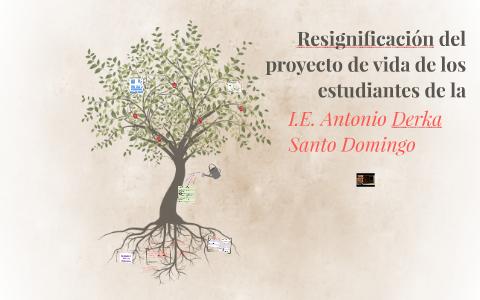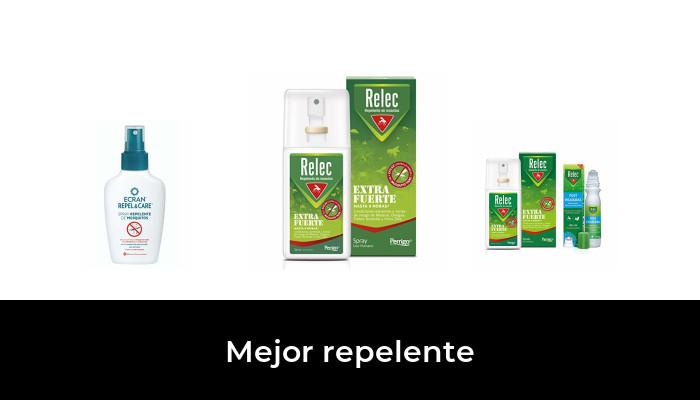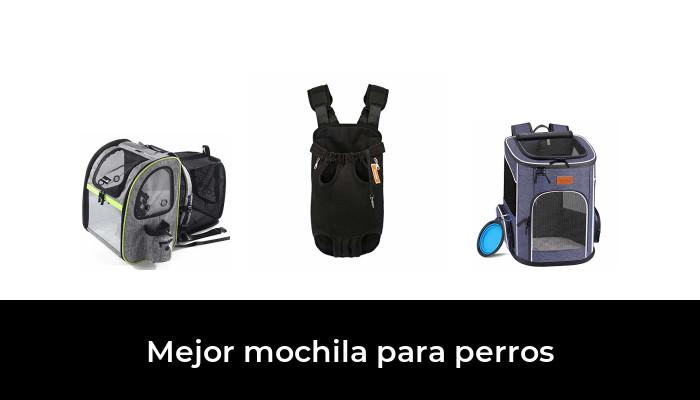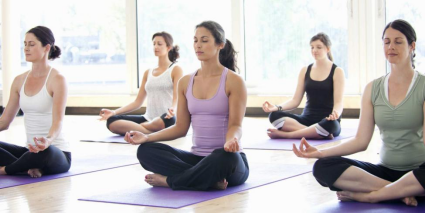resignification of life
There is no doubt that the unprecedented appearance of covid-19 not only generated a dramatic growing variety of symptoms and psychopathological conditions, but also resignified our understanding and therefore the reaction to key notions of our lives: vulnerability, bond, trust, loneliness, help, body, desire, caress, time, and above all, presentified in a concrete, undeniable way (despite the efforts of some) of existence, nothing less than death.
They will ask themselves: did one not know the existence of death? Don't we human beings know that one day life ends? All would affirm it without hesitation. But the issue is obviously more complex and has its own colors and characteristics in each social historical time and in different places on the planet. Today in the West, "land of reason", (it is not an irony) death is politically incorrect. Yes, getting sick and dying is experienced as a failure, "it's not right." We have already made some notes in other chapters that were very suggestive in this regard. But there are certain singular points to which I want to refer and relate them to this "death in times of the covid-19 virus". One aspect is the representation of what I call “infinite loneliness” that alludes to being dead. Because that "not being" of the deceased subject is installed in different and contradictory ways in our individual and collective subjectivity. A philosopher, Espinoza, once said that until the age of 45 we know that death exists, but we don't believe in it. From then on we begin to believe, and there anguish is born about it. We would add, and what do we do then? Do we admit it and resign ourselves? Do we minimize it until it becomes invisible?
Retain the image of invisibility to associate it with the notion of death by covid-19 as we will see later.
We forget it and even almost deny "I know yes but no". Or finally we fight it only theoretically until it becomes an intellectual abstraction. Also nurtured by our medical-scientific arsenal, we dream of extending life so much through longevity that it comes close, although it may seem delusional, to the fantasy of immortality. This goal that a few decades ago would have seemed like a delusion or a science fiction story, today there are many who take it as a fact: there will come a day when men will be immortal, this is certain in the future, they say.
This is very interesting, because since I think that death, of which we have no representation and that anguishes us, is precisely the absence, that which I call infinite loneliness, being alone forever, all have farewell rituals that we install in our postmortem that enhance the desire for detachment, separation, distance from the roots, sometimes placing it in a white and aseptic hospital capsule, ultimately distancing death from reality and from the primordial relationships and bonds of life
Yes to useful fear,
no to useless panic
Well, just as in the previous conditions we tried to make the absence disappear —what a paradox— the vicissitudes of the current pandemic accentuate the isolation of that time called dying. Let us know that one thing is to be alive, another to be dead and a third is the transition that we call dying. In that dying, the current situation of the virus prevents us from seeing and accompanying the patient with our eyes; In short, a vacuum is created for all the protagonists of the scene that complicates the necessary elaboration of the duel as much as possible. I cannot follow the patient with my eyes; the patient cannot somehow perceive my presence accompanying him. In a consultation a patient told me that his father had died "after days of not knowing anything about him, or where he was or how he was, without ever being able to see him." I was suddenly informed that he had died. I remember that I burst into tears and shouted: They kidnapped him!” Today when I think about it, it amazes me and I understand it because this was experienced by many. When I discussed it with other people who had experienced something similar, they told me that the experience they had had was very similar. The covid stealthily invaded his victim and then it was as if it kidnapped him, took him out of the world, doing expansive damage to the entire family of the patient.
This has been an eloquent example, but know that in a less extreme way I have had several queries where this mechanism that defies the obvious takes place.
Let us clarify that within the resistance to admit the truth that frightens and anguish there are variables, we would perhaps call, more elaborated. I am referring to the wide range of rationalizations and justifications that range from conspiracy theories involving people threatened by a general plot to subject the entire world to an occult power, to metaphysical explanations involving quasi-delusional or apocalyptic versions, to divine punishment. as a consequence of a sinful humanity. As we can see, there were multiple attempts to understand what, for the moment, had no answer. But of course there are also many affirmations of childish ingenuity, as we have heard several times. For example "I belong to a long-lived family, it will not happen to me", "I live in a warm area, I never get the flu". As we can see, death and its ghosts have become a major character during this prolonged pandemic, presented constantly, and not always usefully, by a cataract of information in different areas and media.
Many times this baggage, dumped with the best of intentions, that is, that of warning and teaching, became excessive and ended up causing a daze and increasing anguish. On another page of this book I mentioned some of all this, but it seems important to me and that is why I insist. The unconscious intention with the overwhelming information is to control, with the assumption that being on top all the time allows us to be stronger than the disease, makes it possible for us to control and dominate it; we don't have to be distracted.

That uncertainty does not become a threat
The reality is that it ended up giving a different effect. Overwhelmed, a subject feels powerless, crushed and the uncertainty ceases to be such to become an almost palpable threat that often translates into irritability, boredom, restlessness and pessimism that often leads to depression.
That is why I want to repeat two affirmations that I have coined as tools to use at this time during the pandemic, as well as learning for our lives and coexistence in the future. I am pleased with the repercussion it had in different media due to the reassuring result it generated.
“Yes to useful fear, no to useless panic”. Here I seek to prioritize fear in the face of a dangerous situation as an ally of the principle and criterion of reality that allows us to objectify the best ways and strategies to be able to face adversity in a successful way; underlining the value of prudence that we know is an ally and not an enemy of audacity. The latter was a central virtue for the ancients and like the other virtues to which they alluded, justice, temperance and courage, they thought it a friend of courage and opposed to both recklessness and irresponsibility, which, as we know, are So far from wisdom.
Panic, on the other hand, is something else. I am not going to describe here all the symptomatic procession that characterizes it and that we have mentioned so many times, but I will point out that this anxiety attack, because that is what it is about, freezes, confuses, paralyzes, and the person fears dying or becoming crazy, as they say, which obviously never happens. But what does happen is intense suffering, and that is why we must assist him to initially alleviate it and then a treatment to be able to overcome this definitively.
Fear is an ally of courage, panic is instead the effect of imaginary terror.
The infodemic is harmful to health
The other claim is that information overload, also sometimes called an infodemic, ends up being highly damaging. I have coined “Neither malnutrition, nor indigestion”, a gastronomic metaphor that I think is very illuminating.
For someone who is not a specialist in the field, the accumulation of data, speculations and medical conjectures has no benefit, it only stuns, confuses. People are magnetized to the traumatic and it does not have an elaborative didactic function. The convenient thing is to receive what is necessary in adequate quantity and quality, it is nothing other than what we know as harmony.
Invisibility is an aspect closely linked to this disease, to the beginning and development of this pandemic. A virus of an invisible size, an enemy of our health, even more so of our lives, that invades us in an imperceptible way, without us being able to detect it with all our senses and that forces us once infected to a solitary confinement that prevents nothing less than see ourselves and stay with and within our fellow men.
The look that discovers and relates us is blinded. The feeling that appears is that of infinite loneliness, dislodged from that interiority of the other, which, as I said, bears witness to our existence. Seeing and being seen we unconsciously associate with bonds, and therefore with meaning and being alive. As a corollary to this, confusion and helplessness emerge that enhance the danger of the threat and possible future losses. But the most dramatic aspect of this invisibility occurs when hospitalizations occur, where any approach between the patient and his relatives is prohibited. The pain, the impotence that many times reaches the desperate claim emerge with a moving intensity.
In another consultation a patient told me: “Two days ago they called me to tell me that he was transferred to intensive care, and if I wanted to say hello. I nodded, not realizing he was on the phone, because I couldn't really get a word out. He told me that he loved me and to give our daughters a kiss. He had a barely audible voice and tone. I felt that he was saying goodbye to me forever. I didn't know how to keep from bursting into tears and letting him hear it. I needed to see him and for him to know that I was there and that he knew he was where he was.” “Miraculously”, the patient tells me that day, “yesterday they called me and told me that I was already saturating well. I can't tell you what I felt, I was in another space, in another world. I ask you, doctor, do covid patients die or disappear when they are not cured? The farewell of the loved one, in itself always incomplete, is hindered, prevented.
The absence of the feeling of reality that looking and seeing gives causes a complicated mourning process. On the other hand, in the collective subjectivity, "dying alone" provokes panic fantasies.
It is very important to talk about all this, to put words to it, which is a way of making it visible, of trying to understand it, together with the right interlocutors who are always a support. Understanding meanings is a way of seeing.
This pandemic forced humanity to face this disease that, on the other hand, was just acquiring a name as it appeared, to resort to the entire arsenal of knowledge that was available until then. It was necessary to feed everything we did with an instinct of life in order to stand up to the unknown and find an answer. Obviously not only from the organic point of view, but also from the emotional one. In the century where the subject of reason consecrated to the maximum the notion of positivity, of excess, of totality, defying previous divinities, the unknown in this case went back through its pretended coherence and complete harmony. We would almost say that harmony itself had been fragmented by this new global enemy. Aristotle, the wise man, would be alarmed. We, so far, unfortunately, from that Athens of Pericles, were actually aware that human beings cannot think of a melody that is foreign to that of the presence of the other. This disease resignified key notions of our passing in life, it has created us and will undoubtedly leave marks of all the traumatic events for us to work on in the future.
the endless duel
We are the only species that buries its dead or offers them a farewell ritual. We do not have an unconscious record of death itself. Plaques, tombs, cemeteries, monuments —some colossal like the pyramids— testify to the need to build elements that allow us to elaborate that difficult moment of the game. In all religions we find a series of symbolic acts that help to elaborate the end.
The different stages that accompany mourning in each religion serve to comfort the bereaved and to close the cycle of a life that —according to beliefs— will reincarnate or give a path of peace to the soul of the dead. (...)
The covid-19 pandemic prevented a good part of these rituals. And added some particular conditions. In principle, the unexpected death of those healthy people who were infected and had a fatal evolution. Or of those with more risk that precipitated its end.
Loneliness was added to the pain of the loved one's illness. Not being able to accompany the patient in his agony, not being able to shake his hand at the start, not even being able to see him in many cases and not being able to watch over him, bury him or comply with religious rituals generated a psychological impact with quite traumatic consequences.
Many relatives reported guilt — irrational, by the way — of feeling that they had abandoned their loved one for not being able to enter the intensive care rooms, especially at the beginning of the pandemic. A few months later, the “right to say goodbye” was regulated so that — with all the necessary protocols — a representative of the family group can enter the critical space of contagion and put a bridge of dignity between life and death to fire the person Dear. The feeling of "having missed the most important moment" occupied newspaper covers with moving news from those who traveled from afar and did not get to say goodbye to their dead. (...…)
The impossibility of continuing with the wake and burial rituals prevented many people from coming into contact with the reality of the game and, therefore, with the difficulty of accepting his death. Dark fantasies about whether that family member had really been cremated, how his last hours must have been, the words that were not said, not being able to hold his hand at farewell, not hugging with the family and crying together were the stumbling blocks more difficult in the elaboration of a different mourning that interrupted life from one moment to another without being able to say goodbye. (…)
the new rituals
The covid virus disarmed our routines, forced the disappearance of our rituals and forced us to build new ones. (...)
The social distance that made us greet each other with a clenched fist or elbow replaced our very “Argentine” hug. Latin Americans, so prone to hugs and kisses, feel the impact. The "other" became a threat because it could be the vector of the "plague". And we lost contact, the warmth of the skin.
As the months passed, new habits were built and we incorporated what seemed like something out of a science fiction movie. We naturalize it and stop seeing it, paying attention to it. (...)
The fear of contagion transformed many of the acts of our daily lives into rituals. In the early days of the pandemic and, in line with what was becoming known regarding transmission routes, the number of preventive measures was overwhelming. Wash your hands in a certain way and many times a day, clean all surfaces, take off your clothes and change when you come in from the street, leave your shoes outside the house, disinfect all products. Until some time ago, it was enough to remember to bring money, keys and documents when going out: today we have to add the mask and alcohol gel as an essential part of the sanitary attire. All these precautions generated in a large part of the population a reinforcement of certain obsessive behaviors. In the case of people with obsessive-compulsive disorder (OCD), their fears increased and the need to check the entire disinfection ritual turned into a nightmare because at the end the doubt arose again as to whether they had "sanitized" everything properly. (…)
The relegated childhood
The quarantine and consequent isolation threw the children and adolescents to their own fate, leaving them to the contingency of the adults in whose care they are haphazardly. Deprived of other spaces, especially the school and what it represents, as well as links with non-cohabiting relatives, the minors were left at the mercy of the care that their parents or responsible adults could or could not provide them, beyond their good or bad Will. The effects of inequalities at the housing, socio-economic, educational and emotional levels were starkly seen. For many minors, staying at home did not mean staying in a safe place, either for material or emotional reasons related to the environment. Throughout 2020 we saw various institutions, spaces, people and habits that make up the lives of children and adolescents weaken or disappear from the scene and whose loss was very damaging. During the first months of strict confinement, when they were not allowed to leave their homes, it was shocking to go out on the street and find it empty of children and adolescents. The parks were closed and the squares with children's games were marked with "danger" signs or closed, as were the schools, clubs, spaces for sports and religious practices. What happened to them, the youngest, during that period? How did they live through that time of uncertainty, the sudden narrowing of their world and the losses? Relegated from the public sphere, deprived of extra-family spaces, confined for longer and more strictly than other sectors, many had to deal with the emotional effects alone or at most with their cohabiting adults, if they had rest and availability to they.
The boys were limited to interacting, at least in person, with their partners, with fathers and mothers who were more vulnerable, affected to a greater or lesser extent by the threat or effective loss of work, due to fears related to their own health. and that of their parents or older relatives and friends. So, what margin did these same adults, anguished, bewildered, worried and tired by the demands that multiplied, have to care for and support their children? Many of the care networks were dismantled during the pandemic, especially during the months of strict confinement, and this fell on families, in particular on women, who are usually the ones who are more in charge of domestic and care tasks, of both minors and adults. Even in times of booming feminist movements, women continued to want more, they postponed their labor integration and their personal spaces in order to support their homes, care for their children and accompany those who could, virtual school classes. The experience of helplessness, a product of the very outbreak of the pandemic, increased due to the absence of mediating institutions that in “normal” times are part of family and subjective dynamics, and that also have the function of educating, accompanying and assisting in the care and development of minors. To the uncertainty and fear was added the mourning for the losses: loss of life, material health, projects and plans that had to be resigned. For the boys, in addition, loss of spaces for care, socialization, education and relationships with people who occupy the place of references.
☛ Title: And the world stopped
☛ Authors: José Eduardo Abadi, Patricia Faur and Bárbara Abadi
☛ Publisher: Grijalbo
Author data
José Eduardo Abadi is a psychiatrist, psychoanalyst and writer. He is the academic director of the Bachelor of Psychology at UADE.
Patricia Faur is a psychologist from the University of Buenos Aires. She is a professor at Favaloro University and a member of the Consultative Council of Psychology of the UADE.
Bárbara Abadi is a psychologist from the University of Buenos Aires. She completed her full residency in Mental Health at Hospital Argerich and is a member of the Argentine Psychoanalytic Association (APA).
You may also like
![47 best antiage nutritive cream in 2022 [based on 326 reviews]](https://website-google-hk.oss-cn-hongkong.aliyuncs.com/drawing/article_results_6/2022/2/27/1918fc37c66ad30564173e69d9df88a0.jpeg)








